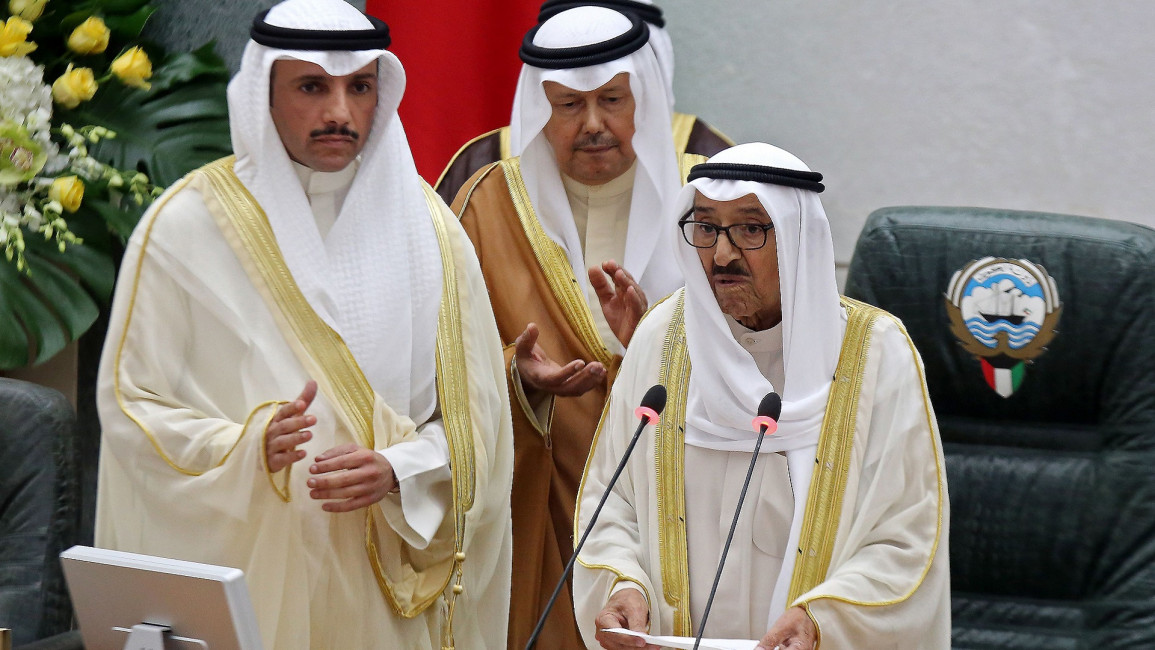Kuwaiti emir says dispute between Qatar and Gulf neighbours is unacceptable
A damaging 30-month-old dispute between Qatar and its Gulf neighbours "is no longer acceptable" and must be resolved, Kuwait's Emir Sheikh Sabah al-Ahmad Al-Sabah said on Tuesday.
Addressing the opening session of the Kuwaiti parliament's new term, Sheikh Sabah said the Saudi-led boycott has greatly weakened the unity of the six-nation Gulf Cooperation Council (GCC) in which Qatar and the countries which are blockading it are members.
Read more: GCC – A glimmer of hope or condemned to history?
GCC members Saudi Arabia, the United Arab Emirates and Bahrain, in addition to Egypt, imposed a sea, land and air blockade of Qatar in June 2017 accusing it of ties to radical groups. Doha has repeatedly denied the allegations, which were based on false news published on the website of the Qatari News Agency (QNA) after it was hacked.
"It is no longer acceptable or bearable for the dispute that erupted between our GCC brethren to continue," Sheikh Sabah, 90, told parliament in his first public appearance since travelling abroad for medical treatment in early September.
Sheikh Sabah, who has been acting as a mediator to resolve the dispute, said the "row has weakened our capabilities and threatened our achievements", calling for a negotiated solution.
In 2017, shortly after the blockade was imposed, Saudi Arabia gave Kuwait a list of 13 demands to pass on to Qatar. Qatar rejected these, saying that they violated its sovereignty and aimed to impose hegemony on it. The blockade has been largely ineffective.
The emir also called for national unity in the face of regional developments and protests in several Arab countries.
He also hit out at the misuse of social media, saying it has created divisions in society.
In Kuwait, dozens of online activists have been sentenced to various jail terms, mainly for criticising the emir.
In New York on Tuesday, Qatar’s ambassador to the UN, Sheikha Alya Ahmed Al-Thani said that Qatar was willing to engage in “unconditional dialogue” with the countries blockading it in order to “resolve the fabricated crisis”.
She said that these countries had failed to provide any evidence of their claims that Qatar was “sponsoring terrorism”.



